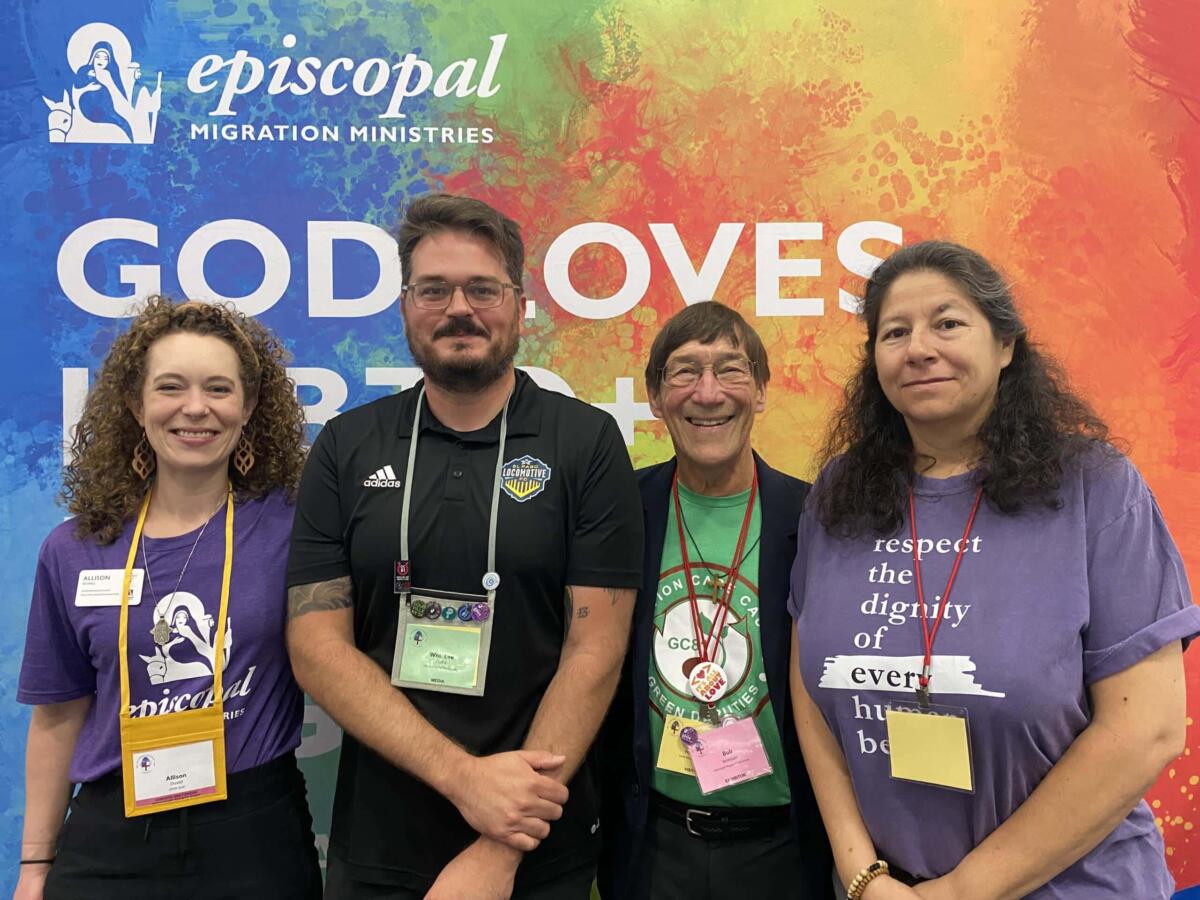By Max Niedzwiecki, Consultant for EMM’s Rainbow Initiative
Curious about The Episcopal Church’s commitment to immigrants over the next three years? This blog post is for you!
Episcopalians from every diocese gathered in June 2024 to set the Church’s strategic direction, as they normally do every three years. This General Convention took place in Louisville, KY, where delegates, bishops, ministry leaders, and laypeople (including Episcopal Migration Ministries (EMM) and Rio Grande Borderland Ministry) met with one another for prayer and conversation. They also considered 390 resolutions covering topics ranging from how we worship to how we express our faith in the wider world. These resolutions become the official positions of The Episcopal Church once they are approved by both the House of Deputies and the House of Bishops, in a process that mirrors the House of Representatives and Senate in the U.S. Government.
The Episcopal Church approved the following four resolutions focusing on migration at General Convention. For more detail, read the original materials at the links below, including the “Final” versions, the “Explanations” (under the “Original” tab), and the attachments provided under “Documents.”
Migration with Dignity (C031) begins by stating principles of the Church’s commitment to concern for people who are compelled to migrate. The following section calls on all Episcopalians to use ideas contained in the Migration with Dignity framework to support migrants. Next, the resolution calls for the establishment of a Task Force on Migration with Dignity “to build on and expand migration ministries in The Episcopal Church and to develop a strategic plan for coordinated, global … ministry … for all migrating persons,” and requests that $10,000 be budgeted for that purpose. Finally, it directs EMM to work with the Task Force and the Episcopal Migration Response Network (EMRN) to launch a church-wide Migration with Dignity formation program, and it determines that an annual Migration with Dignity Sunday be established in The Episcopal Church during the season of Epiphany.
Enable Episcopal Migration Ministries to More Fully Live Out its Mission (D026) affirms that EMM’s mission as a ministry of The Episcopal Church is to serve forced migrants broadly speaking, and it acknowledges that the vast majority of EMM’s work is carried out through the U.S. Refugee Admissions Program (USRAP). The resolution commends this work, and pledges continued support for it, while recognizing that many forced migrants (including asylum seekers, undocumented populations, and others) do not have access to the USRAP. The resolution closes by requesting that the Church’s Executive Council allocate $200,000 to EMM to “develop additional resources for the mission of supporting forced migrants.”
Encourage All Ministries of The Episcopal Church to Assess Intersections with Migration (D037) celebrates the fact that “immigrants are part of every community and congregation,” and it acknowledges that “immigration and the lives of immigrants are intimately linked with diverse phenomena that are the focus of Ministries of The Episcopal Church, including [for example] creation care, racial justice, gender, sexual orientation, gender identity, economic justice, healthcare, social justice, and evangelism.” It calls upon all ministries of the Church to assess how their concerns intersect with migration, in collaboration with EMM and EMRN. Data collected through a survey will be compiled by the Church’s Standing Commission on World Mission, and then shared with Church leadership for reflection and further action at the next General Convention, scheduled for 2027.
Support Temporary Protected Status (D067) calls on the Church to advocate for the expansion of Temporary Protected Status (TPS), a U.S. government program that offers protection to vulnerable migrants from designated countries. It also calls for advocacy to allow people with TPS status to pursue citizenship, and to adjust their immigration status without leaving the U.S.
Immigration is complicated, and the lives of people who are forced to flee from their home countries are difficult. Amidst this complexity and hardship, The Episcopal Church formally decided through the resolutions summarized above that:
- Our faith continues to direct us to welcome and serve newcomers who have fled their homelands in search of safety, regardless of the labels that are used to describe them;
- We will seek opportunities to expand this welcome, in partnership with one another; and
- These efforts will consider migrants as full human beings whose struggles and triumphs are interwoven with all the great challenges facing the world that we share.



